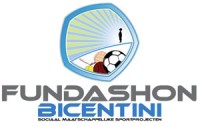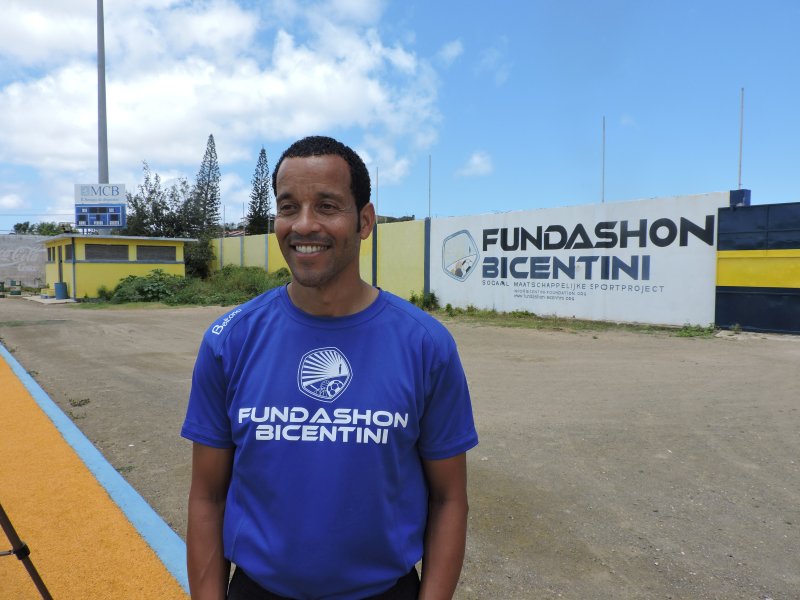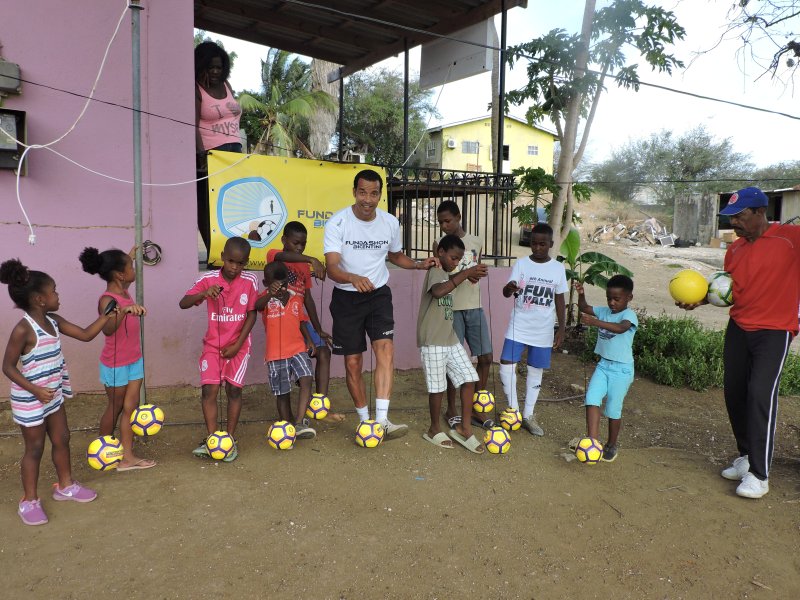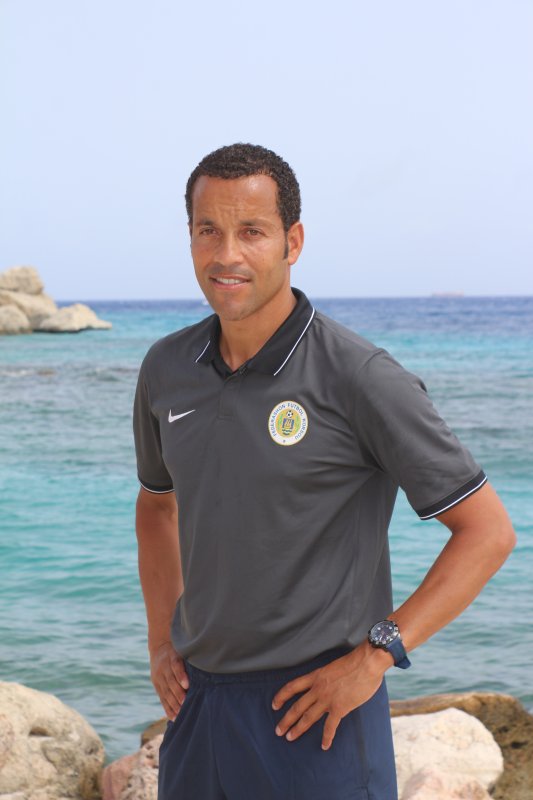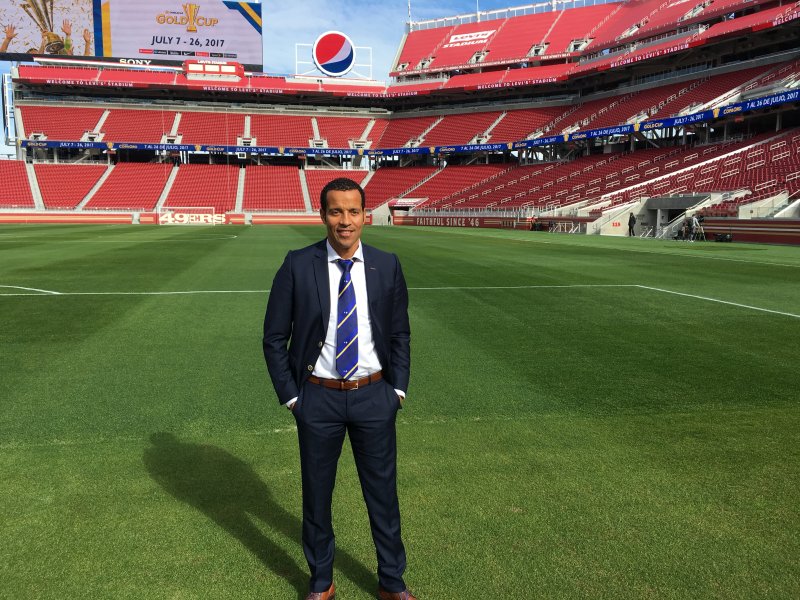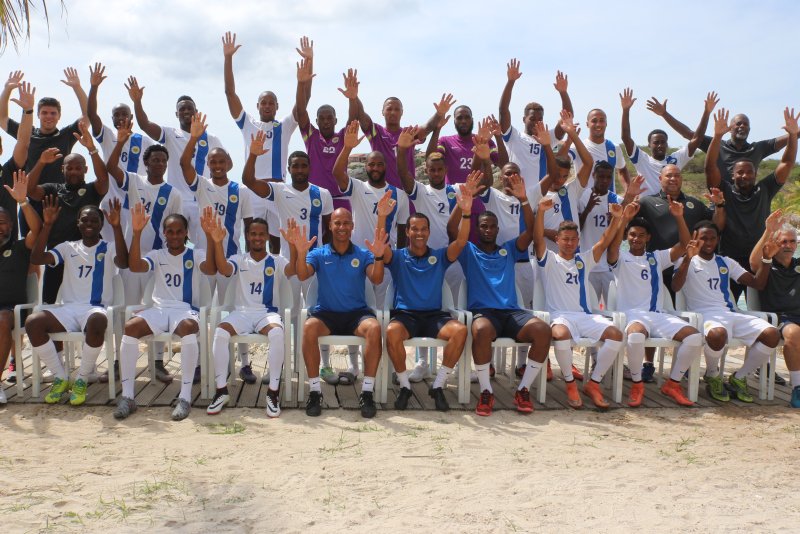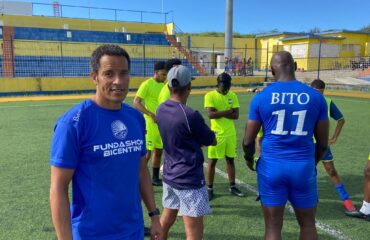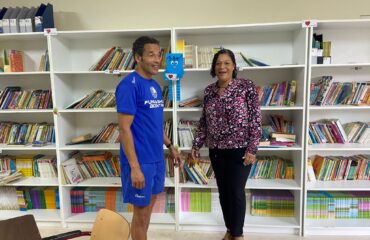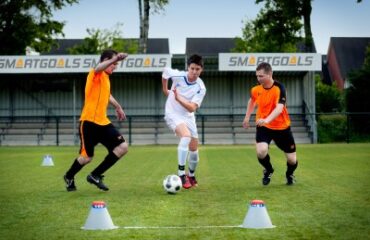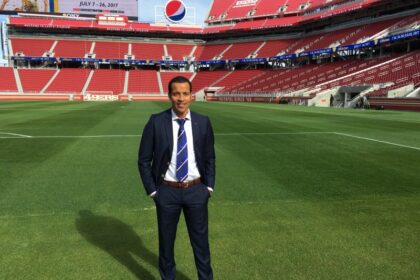
Football is the one sport he has been experiencing around the age of four, and it is the one he loves most, “because it is very accessible to everyone.” Remko Bicentini was born and raised in Nijmegen, Netherlands while getting endless inspiration from his father, Moises Bicentini. Since the age of four, Remko was part of a local football club. “Apparently I was able to kick a nice ball with my left foot.” Since then, he developed his skills while attending school. His father was an association football player from Curaçao who played for NEC in the Netherlands. For this reason, he also had the opportunity to play professional football for NEC. Remko Bicentini is now officially the national coach of the Curaçao national team since 2016 after being the assistant national coach. “It is a great honor.” Throughout the nine years of his career of being the assistant national coach, he has learned a lot. He always felt this “responsibility towards the country disregarding the results” as a coach.
Being a coach
Being a coach means to create a plan, come up with strategies and ways to surprise and disrupt an opponent. “Everyone knows what football is, but to delve into the opponent, not only regarding football,” but also its culture is something else. “Each country has a different a discipline that you come across.” It’s Remko’s job, as a coach, to translate it to the players. “They sometimes say participation is more important than winning, but the opportunity to do this [to be the coach] is gold.” His position comes with more than meets the eye. In the Netherlands, Remko Bicentini has been coaching a Paralympic football team for six months now. It is another amazing experience that is about interaction and communication with the players. It requires patience and the will to do it all!
Important skills
According to Remko Bicentini, “communication and of course your insight” in football in general is two of the most important skills a coach can have. It is essential to know about the culture, the vision and the mission of the country when you are the head coach of a national team, which is an advantage Remko has due to having many experiences here in Curaçao. As a coach, it is important to be able to deal with everything that comes his way, while still preparing the players the best he can. It is all about “giving and taking.”
Caribbean Cup champions
The Curaçao national football team became the Caribbean champion of the Caribbean Cup championship tournament in 2017. “We worked hard for it. I think the feeling that we have done something for Curaçao” is the most important and special part of the entire experience. It was an “absolute honor” to have been allowed to play for their country. Remko has been coaching and guiding a large number of players since the very first day they became a part of the national team. He believes that one may have a goal, but resources are needed to be able to achieve it, and “the means I think is your absolute drive” towards achievement. Last year, 2017, was definitely Remko’s best year “not in terms of results, but in terms of the cooperation with the federation, agreements, concretizing agreements for a longer term.” The change is amazing.
Bicentini foundation
To give back to the community, Remko Bicentini decided to provide materials and knowledge to Curaçao in general, to provide opportunities and to encourage both the mental and physical well-being of the youth. He also has a project “from street to stadium”, which is all about teaching kids to be responsible and learning in a playful way. The feeling and the satisfaction afterwards is simply ineffable.
Remko Bicentini and the Curaçao national football team are now entering a whole new phase for the UEFA Nations League starting with a match against Grenada in September 2018. In October there will be a match against the Virgin Islands in Miami, in November a match against Guadeloupe and in March 2019 a match against Antigua. Remko and the Curaçao national football team are working hard to succeed to go back to the United States in June/July 2019 for CONCACAF Gold Cup. The players need to be focused. “Winning a match once is not so difficult, but you have to continue.” Remko is not only focused on the national team, but also on players around 13 to 16 years of age, because they are the players who are capable enough. He believes that attention must be paid to the children in Curaçao. “It’s about now and the performance of today.”
